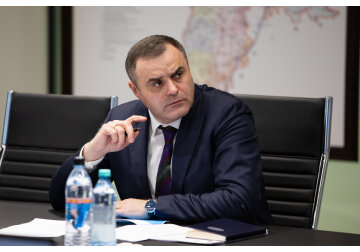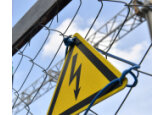
A competitive gas market may appear in Moldova in the next 2 years, as the country is rapidly implementing radical reforms - Vadim Ceban.
This was stated by the Chairman of the Board of "Moldovagaz" in an interview with ICIS (Independent Commercial Investigation Service), noting that Moldova can attract both local and foreign companies to a virtual point of sale (VPS - a unique non-physical point for transferring all ownership of natural gas from one participant to another participant in the natural gas market, from the balancing zone of Moldova) subject to a number of steps to be taken. These include short-term measures such as the unbundling of transmission operations and the launch of a balancing market, as well as actions related to more complex issues such as the restructuring of Moldova's historic gas debt to Russia and the future of Russian gas transit as such. Moldovan suppliers are expected to sign balancing agreements with the transmission system operator Moldovatransgaz by June 10 as a matter of priority. The balancing market itself will be managed by Moldovatransgaz and is expected to be launched in July. This will allow suppliers who have bought volumes at the border to trade on virtual points of sale as long as they meet the requirements of the new balancing market. According to Vadim Ceban, there are currently 6 suppliers on the market, but only 2 - Moldovagaz and Energocom - trade on virtual points of sale.“As the market develops, more and more companies can join the wholesale trade at virtual points of sale, and this can happen within 1-2 years,” added Vadim Ceban. According to ICIS experts, launching a balancing market may not be an easy task. On the one hand, the country is in dire need of a supporting IT infrastructure, which is very expensive. This means that for the moment Moldova has chosen a temporary format where imbalances are calculated daily and the balancing price is set around the 20th day of each month. On the other hand, the future of "Moldovatransgaz" as a transport company is uncertain, because before June 10, the company must apply for division to NAER. "There are fears that the Russian Gazprom, which is the majority shareholder of Moldovagaz, may reject the application for division," Vadim Ceban added. In this case, he said, NAER could force the split by revoking the transmission license from Moldovatransgaz and allowing another independent licensed operator in the country, Vestmoldtransgaz, to take over the transmission operations. If this happens, Vestmoldtransgaz, which is majority-owned by the Romanian gas network operator Transgaz, could be tasked with managing Moldova's balancing market. Vadim Ceban said that Gazprom could condition the split by restructuring Moldova's historic gas debt, which currently stands at $709 million. He confirmed that an audit had been carried out in recent months and the results should be discussed with the authorities this month. Vadim Ceban noted that if the unbundling is successful, Moldovagaz will retain its supply and distribution operations, as well as those of Transautogaz, which supplies LNG for transport. The incumbent operator itself was forced to undergo major changes after Gazprom cut gas supplies to the country at the start of winter, both in 2021 and 2022. Faced with limited supplies, the government instructed Energocom to buy gas from European hubs, which were then sold to Moldovagaz. This means that since December 2022, Moldovagaz has suspended Russian imports for the needs of consumers on the right bank of Moldova, switching to purchasing volumes from European hubs through Energocom. “Current imports are about 1 million cubic meters per day or less, but the total needs of Moldova for 2023 are about 920 million cubic meters,” added Vadim Ceban. However, a more complicated situation is connected with the Transnistrian region. Although this region is much smaller than Moldova, it imports about 2 bcm per year from Russia, which are used to generate electricity, which is supplied back to the right-bank Moldova. It currently imports about 5.7 million cubic meters of Russian gas per day through the Grebeniki border crossing with Ukraine in accordance with EU rules on capacity reservation. However, with the expiration of Russia's transit contract with Ukraine for the supply of gas to consumers in the EU and Moldova at the end of 2024, questions about the future of supplies to Transnistria after this date are growing. Vadim Ceban said the issue is very complex and will depend on geopolitical factors such as the outcome of the war in Ukraine, as well as the settlement of Transnistria's historic debt to Gazprom, which is now approaching $10 billion. He declined to comment on long-term prospects. In the absence of an updated contract for the transit of Russian gas, Transnistria would have to integrate even more with Moldova to ensure access to alternative gas supplies. Such integration could mean following the example of Moldova and fully complying with EU rules, as well as solving the historical debt problem. However, according to the head of Moldovagaz, no immediate solutions are yet in sight.// 06.06.2023 — InfoMarket







